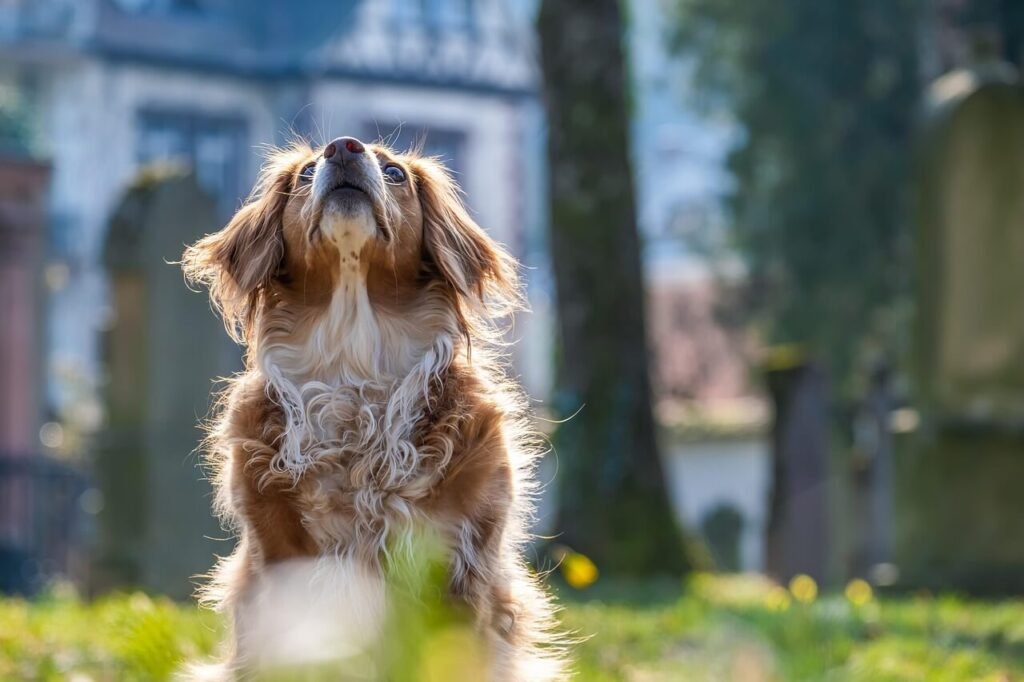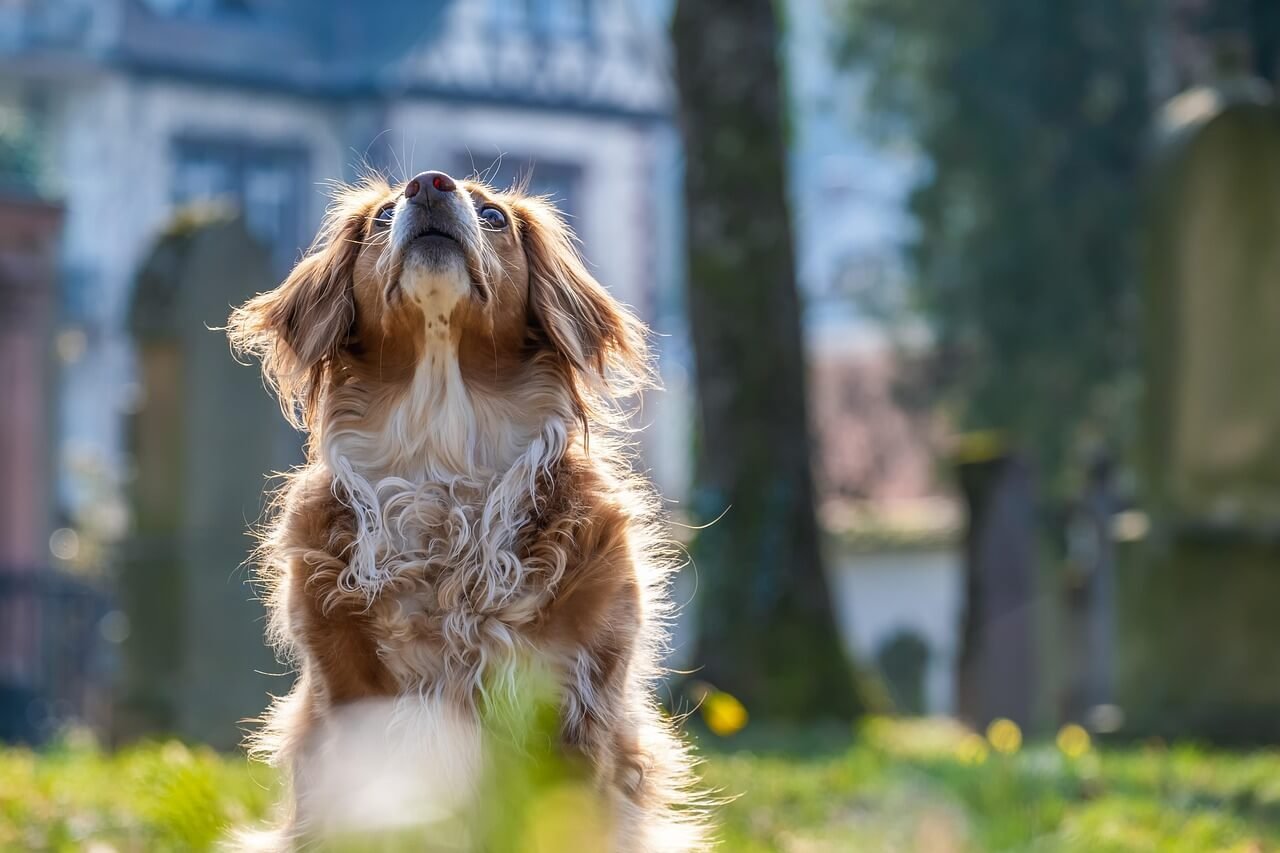Why Is My Dog Sniffing Me More Than Usual? Decoding Your Pup’s Behavior
Dogs are known for their incredible sense of smell, and sniffing is one of the primary ways they explore and interact with the world. However, if you’ve noticed your dog sniffing you more than usual, it might leave you wondering what’s going on in their furry little head. Is it curiosity, affection, or something else entirely? In this blog post, we’ll delve into the reasons behind this behavior, helping you understand your dog’s motivations and strengthening your bond. Whether it’s a sign of love, a health concern, or simply their natural instincts at play, we’ll uncover the answers to why your dog might be sniffing you more than usual.
Common Reasons Why Your Dog Is Sniffing You More Than Usual
Sniffing is a natural behavior for dogs, but when it becomes more frequent, there could be several explanations. Let’s explore some of the most common reasons why your dog might be paying extra attention to your scent.
Curiosity About Changes in Your Routine:
Dogs are highly attuned to their owners’ habits. If your schedule, diet, or activities have changed recently, your dog may sniff you to gather information about these shifts.Detecting New Scents on Your Body:
If you’ve been around other animals, people, or strong-smelling substances, your dog might sniff you to investigate these unfamiliar odors.Seeking Comfort and Reassurance:
Sniffing can be a way for your dog to feel closer to you, especially if they’re feeling anxious or uncertain about their environment.Health Monitoring:
Dogs have an extraordinary ability to detect changes in your body chemistry. Increased sniffing could indicate they’re picking up on subtle health changes, such as hormonal fluctuations or illness.Strengthening the Bond:
Scent is a powerful tool for dogs to connect with their humans. Extra sniffing might simply be their way of expressing affection and reinforcing your relationship.
Understanding these reasons can help you interpret your dog’s behavior and respond appropriately. Remember, sniffing is their way of communicating and learning about the world around them.
Behavioral Cues to Look For When Your Dog Sniffs You More Often
While increased sniffing is usually harmless, it’s important to observe your dog’s overall behavior to determine if there’s a deeper issue. Here are some behavioral cues that might accompany excessive sniffing.
Tail Wagging or Excitement:
If your dog seems happy and energetic while sniffing, it’s likely a sign of curiosity or affection rather than a cause for concern.Anxiety or Restlessness:
If your dog appears nervous, pacing, or unable to settle, the sniffing could be a coping mechanism for stress or anxiety.Licking or Nudging:
These actions often accompany sniffing and may indicate your dog is seeking attention or reassurance from you.Changes in Appetite or Energy Levels:
If your dog’s sniffing is paired with a loss of appetite or lethargy, it could signal an underlying health issue that needs veterinary attention.Focus on Specific Areas of Your Body:
If your dog is fixated on sniffing a particular part of your body, they might be detecting a specific scent or change in that area.
By paying attention to these cues, you can better understand whether your dog’s increased sniffing is normal or if it requires further investigation. Always trust your instincts and consult a professional if something feels off.
Check this guide 👉Why Is My Dog Sniffing Food But Not Eating? Best 7 Tips!
Check this guide 👉Why Do Dogs Sniff Butts? Best 7 Expert Tips!

Possible Reasons for Increased Sniffing | What You Can Do |
|---|---|
Curiosity about new scents | Share your day with your dog calmly |
Seeking comfort or reassurance | Spend quality time together |
Detecting health changes in you | Monitor your own health and consult a doctor if needed |
Strengthening the bond | Engage in bonding activities like walks or playtime |
Anxiety or stress | Provide a calming environment and consider training |
How to Respond to Your Dog’s Increased Sniffing
If your dog is sniffing you more than usual, it’s important to respond in a way that reassures them and meets their needs. Here are some tips on how to handle this behavior effectively.
Stay Calm and Patient:
Avoid reacting negatively to the sniffing, as this could confuse or upset your dog. Instead, remain calm and let them explore.Engage in Play or Exercise:
Sometimes, increased sniffing is a sign of pent-up energy. A good play session or walk can help redirect their focus.Provide Mental Stimulation:
Puzzle toys or scent-based games can satisfy their curiosity and reduce excessive sniffing.Check for Health Issues:
If the behavior persists or seems unusual, schedule a vet visit to rule out any medical concerns.Reinforce Positive Behavior:
Reward your dog with treats or praise when they exhibit calm and appropriate behavior, encouraging them to repeat it.
Responding thoughtfully to your dog’s sniffing can strengthen your bond and ensure their needs are being met. Remember, patience and understanding go a long way.
When to Be Concerned About Your Dog’s Sniffing Behavior
While occasional sniffing is normal, certain patterns or accompanying behaviors might indicate a problem. Here’s how to recognize when your dog’s increased sniffing warrants attention.
Persistent Sniffing of One Area:
If your dog obsessively sniffs a specific spot on your body, it could indicate they’re detecting an injury or infection.Accompanying Lethargy or Discomfort:
If your dog seems unusually tired or unwell alongside the sniffing, it may be a sign of illness.Aggression or Protective Behavior:
If your dog growls or becomes protective while sniffing, they might be sensing something threatening or unfamiliar.Sudden Changes in Behavior:
A drastic shift in your dog’s demeanor, combined with increased sniffing, could point to stress or anxiety.Ignoring Basic Commands:
If your dog is too distracted by sniffing to respond to commands, it might indicate an underlying issue that needs addressing.
Being aware of these red flags can help you act quickly and ensure your dog stays healthy and happy. Trust your instincts and seek professional advice when necessary.
Fun Facts About a Dog’s Sense of Smell
Dogs have an extraordinary sense of smell, and understanding their olfactory abilities can shed light on their sniffing behavior. Here are some fascinating facts about a dog’s nose.
Up to 300 Million Olfactory Receptors:
Dogs have far more scent receptors than humans, making their sense of smell thousands of times more powerful.Specialized Brain Region:
A significant portion of a dog’s brain is dedicated to processing smells, allowing them to interpret complex scents.Unique Nose Prints:
Just like human fingerprints, every dog’s nose print is unique and can even be used for identification.Ability to Detect Emotions:
Dogs can pick up on pheromones and chemical changes, allowing them to sense your mood or stress levels.Tracking Scents Over Long Distances:
Some breeds can track scents over miles, showcasing their remarkable scent-tracking abilities.
These facts highlight just how incredible a dog’s sense of smell truly is, offering insight into their sniffing habits.
Training Tips to Manage Excessive Sniffing
If your dog’s sniffing becomes distracting or overwhelming, training can help manage the behavior. Here are some effective strategies.
Teach the “Leave It” Command:
This command helps redirect your dog’s focus away from sniffing inappropriate objects or areas.Use Positive Reinforcement:
Reward your dog for calm behavior to encourage them to stop sniffing excessively.Practice Focus Exercises:
Games like “watch me” or “focus” can help improve your dog’s attention span and reduce distractions.Introduce Scent Work:
Channel their sniffing energy into structured activities like scent detection games or nosework classes.Set Boundaries:
Use verbal cues or physical barriers to establish boundaries for when sniffing is allowed.
With consistent training, you can help your dog manage their sniffing tendencies while still embracing their natural instincts.
Signs Your Dog Is Using Their Nose to Communicate
Sometimes, your dog’s sniffing is more than just exploration—it’s a form of communication. Here’s how to interpret their messages.
Sniffing Your Face:
This is often a sign of affection, as dogs associate your face with familiarity and comfort.Sniffing Your Hands:
Your hands carry scents from your daily activities, and your dog might be curious about where you’ve been.Sniffing Your Feet:
Feet have sweat glands that release unique scents, making them a prime target for curious sniffers.Sniffing After Being Apart:
When reunited, dogs sniff to gather information about what you’ve done while you were away.Sniffing During Greetings:
This is a natural way for dogs to say hello and learn about others through scent.
Understanding these signals can deepen your connection with your dog and help you respond to their needs more effectively.
Frequently Asked Questions About Why Your Dog Is Sniffing You More Than Usual
Is it normal for my dog to sniff me more than usual?
Yes, it’s normal, but it could indicate curiosity, affection, or even health-related concerns.
Can dogs detect illnesses through sniffing?
Yes, dogs have an incredible ability to detect changes in body chemistry, which can sometimes indicate illness.
Should I stop my dog from sniffing me?
Not necessarily. Sniffing is a natural behavior, but you can redirect it if it becomes excessive or bothersome.
What should I do if my dog won’t stop sniffing me?
Try engaging them in play, exercise, or mental stimulation to distract them. If the behavior persists, consult a vet.
Does increased sniffing mean my dog is stressed?
It could, especially if paired with other signs of anxiety like restlessness or whining.
The Nose Knows: Understanding Your Dog’s Sniffing Habits
In conclusion, dogs use their incredible sense of smell to navigate the world and connect with their humans. While increased sniffing is often harmless, it’s essential to pay attention to context and accompanying behaviors to ensure your dog’s well-being. By understanding why your dog is sniffing you more than usual, you can strengthen your bond and address any underlying issues. Remember, every sniff is a form of communication—so listen closely to what your furry friend is trying to tell you!
Cuterebra Larvae in Cats: Best 7 Expert Tips! – Expert advice on signs, treatment & prevention of this rare but serious feline parasitic infestation.
Cuterebra Larvae in Dogs: Best 7 Expert Tips! – Expert advice on signs, treatment & prevention of this rare but serious parasitic infestation.
Cat Tumor on Paw: Best 7 Expert Tips! – Expert advice on signs, diagnosis, treatment & care for feline paw tumors.
Panacur Side Effects in Dogs: Best 7 Expert Tips! – Safe usage, common reactions & when to call the vet.





